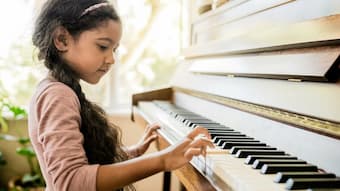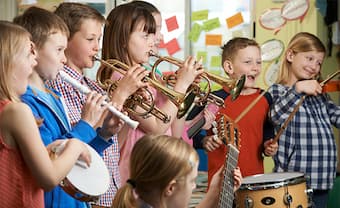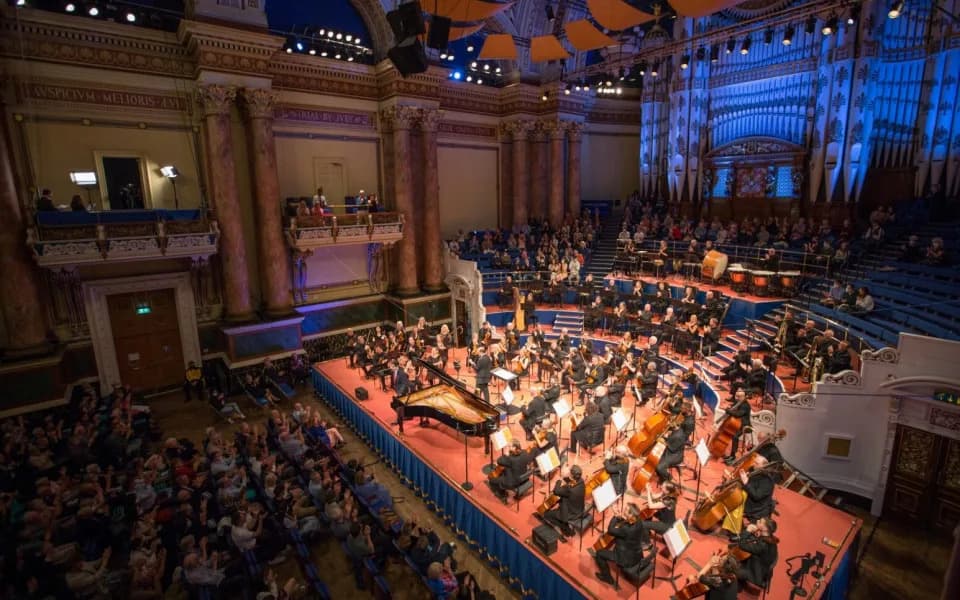It seems a simple question, doesn’t it? And the simple answer is that music lessons are for learning music / a musical instrument.
But learning an instrument, either via formal music lessons or self-teaching, offers so much more.
Gustav Holst: The Planets, Op. 32 – IV. Jupiter, the Bringer of Jollity (BBC Symphony Chorus; BBC Symphony Orchestra; Gennady Rozhdestvensky, cond.)
Motivation and self-improvement

© Public Broadcasting Service
Without motivation you won’t practice your musical instrument and you won’t progress. Motivation comes from within, from your own desire to practice and improve, and also from outside, specifically teachers and mentors, parents and peers. Productive practising creates a satisfying virtuous circle: you see the improvement in your playing and this motivates you to keep striving.
Organisation, self-discipline and self-reliance
Music lessons encourage self-reliance and organisation, even for young children who are supported by their parents. You are required to attend your music lessons at a certain time on a certain day, and to go to your lessons well prepared, with the right music, practice notebook and other accoutrements of learning.
Regardless of whether you play in an ensemble or orchestra, most of your practicing will be done alone, albeit with the guidance of a teacher via your regular music lessons. Organising and committing to practice demonstrates self-reliance.
Building confidence and self-esteem

© Elijah M. Henderson on Unsplash
Perhaps the most significant benefit of music lessons is in building confidence. During music lessons, students receive feedback and critique from their teacher. Learning how to accept this feedback and turn negative commentary into something positive and constructive helps build self-confidence. In addition, preparing and playing music for others – teachers, examiners/adjudicators, an audience – is challenging, regardless of the level at which you play. Learning how to manage performance anxiety breeds greater confidence and emotional resilience, both important life skills which can be applied to other areas of your life, for example, giving a presentation or public speaking.
Developing coordination and physical and mental skills
Learning and playing a musical instrument requires coordination and the refinement of small and larger motor skills. Playing a musical instrument helps to develop ambidexterity, and enhancing coordination and perfecting timing help in other physical activities, like dance and sports.
Music and math are highly intertwined, and by understanding meter, rhythm, and scales, as a music student you learn how to divide, create fractions, and recognise patterns. Learning a musical instrument has also been shown to increase cognitive ability, including reasoning, faster processing of information and memory. For young children, learning music can speed the development of speech and writing skills.

© www.activekids.com
Cultivating team building, collaboration and social skills
Group music lessons and classes encourage collaboration while also teaching children to appreciate their individual part in a larger ensemble such as a band or orchestra. Team-building and collaboration are also important life skills to take forward into adult life.
Personal fulfilment
Playing and learning a musical instrument can bring a great sense of personal fulfilment, from passing Grade 1 piano to succeeding in an audition to conservatoire, or simply playing for pleasure.
For more of the best in classical music, sign up to our E-Newsletter



